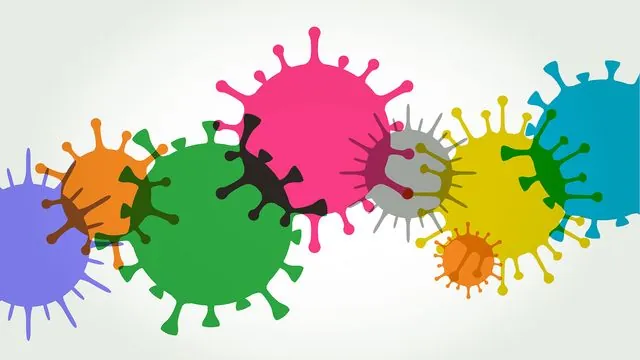
Alarming Heart Health Decline Post-COVID-19: What You Need to Know Now!
2025-03-26
Author: Arjun
Alarming Heart Health Decline Post-COVID-19: What You Need to Know Now!
A recent study conducted by experts at the Federal University of São Carlos (UFSCar) in Brazil has unveiled shocking findings: individuals who have recovered from COVID-19, even those with mild cases, are experiencing significant cardiovascular issues and may require rehabilitation. This research, which involved 130 participants and received support from FAPESP, highlights the urgent need for awareness regarding long-term heart health post-infection.
Published in the journal Scientific Reports, the study indicates that volunteers tested up to six weeks after contracting COVID-19 exhibited a steep decline in heart rate variability (HRV)—a critical measure of heart health reflecting the time variance between heartbeats. Although improvements were noted in those tested between two and six months and seven to twelve months after infection, their HRV levels remained below those of healthy control subjects who had never contracted the virus.
Why is HRV so important? A higher HRV is typically associated with better cardiovascular resilience and adaptability to stress, both physical and environmental. Therefore, lower HRV suggests that the heart is struggling to respond to everyday challenges, an issue exacerbated by COVID-19's inflammatory effects on the body.
Audrey Borghi Silva, the head of the Cardiopulmonary Physiotherapy Laboratory at UFSCar, stressed the need for rehabilitation programs for all COVID-19 survivors, regardless of the severity of their illness. Interestingly, many participants in the study were around 40 years old and presented additional risk factors such as diabetes, obesity, and high cholesterol—factors that COVID-19 may have further aggravated.
The implications of COVID-19 on cardiac autonomic control are becoming increasingly evident through multiple studies. Aldair Darlan Santos-de-Araújo, a researcher and primary author of the study, emphasized that their findings confirm the negative impacts of the virus on heart health, particularly in younger and middle-aged individuals.
A Clear Warning: Sympathetic vs. Parasympathetic Imbalance
The research also discovered a concerning dominance of the sympathetic nervous system over the parasympathetic nervous system among participants recovering from COVID-19. These two systems govern involuntary bodily functions, including heart rate. The sympathetic system is responsible for “fight or flight” responses, while the parasympathetic system promotes relaxation and recovery. An imbalance here signals potential heart problems.
Santos-de-Araújo noted that this disruption in autonomic function could lead to serious cardiovascular diseases down the line if not addressed. As recovery progresses, researchers observed hints of improvement, suggesting that some individuals may gradually regain a healthier balance between these two nervous system components.
Another alarming finding was that shortness of breath was the most prevalent symptom among those displaying poorer cardiac autonomic modulation, but other issues were reported, including fatigue, headache, loss of taste, and anxiety—underscoring the diverse and multi-systemic nature of post-COVID recovery.
The study’s conclusions serve as a critical reminder of the unseen ramifications of COVID-19 and the need for comprehensive health assessments and interventions for all survivors. The path to recovery may not just be in overcoming the virus but also in ensuring long-term cardiovascular health.
As the world continues to grapple with the aftermath of the pandemic, prioritizing heart health in post-COVID-19 individuals has never been more essential. If you or a loved one have recovered from COVID-19, consider consulting a healthcare provider about monitoring your heart health. Don’t ignore the signs—your heart could be calling for help!
Reference: Santos-de-Araújo AD, et al. "Impact of COVID-19 on heart rate variability in post-COVID individuals compared to a control group." Scientific Reports, 2024;14(1):31099.

 Brasil (PT)
Brasil (PT)
 Canada (EN)
Canada (EN)
 Chile (ES)
Chile (ES)
 Česko (CS)
Česko (CS)
 대한민국 (KO)
대한민국 (KO)
 España (ES)
España (ES)
 France (FR)
France (FR)
 Hong Kong (EN)
Hong Kong (EN)
 Italia (IT)
Italia (IT)
 日本 (JA)
日本 (JA)
 Magyarország (HU)
Magyarország (HU)
 Norge (NO)
Norge (NO)
 Polska (PL)
Polska (PL)
 Schweiz (DE)
Schweiz (DE)
 Singapore (EN)
Singapore (EN)
 Sverige (SV)
Sverige (SV)
 Suomi (FI)
Suomi (FI)
 Türkiye (TR)
Türkiye (TR)
 الإمارات العربية المتحدة (AR)
الإمارات العربية المتحدة (AR)